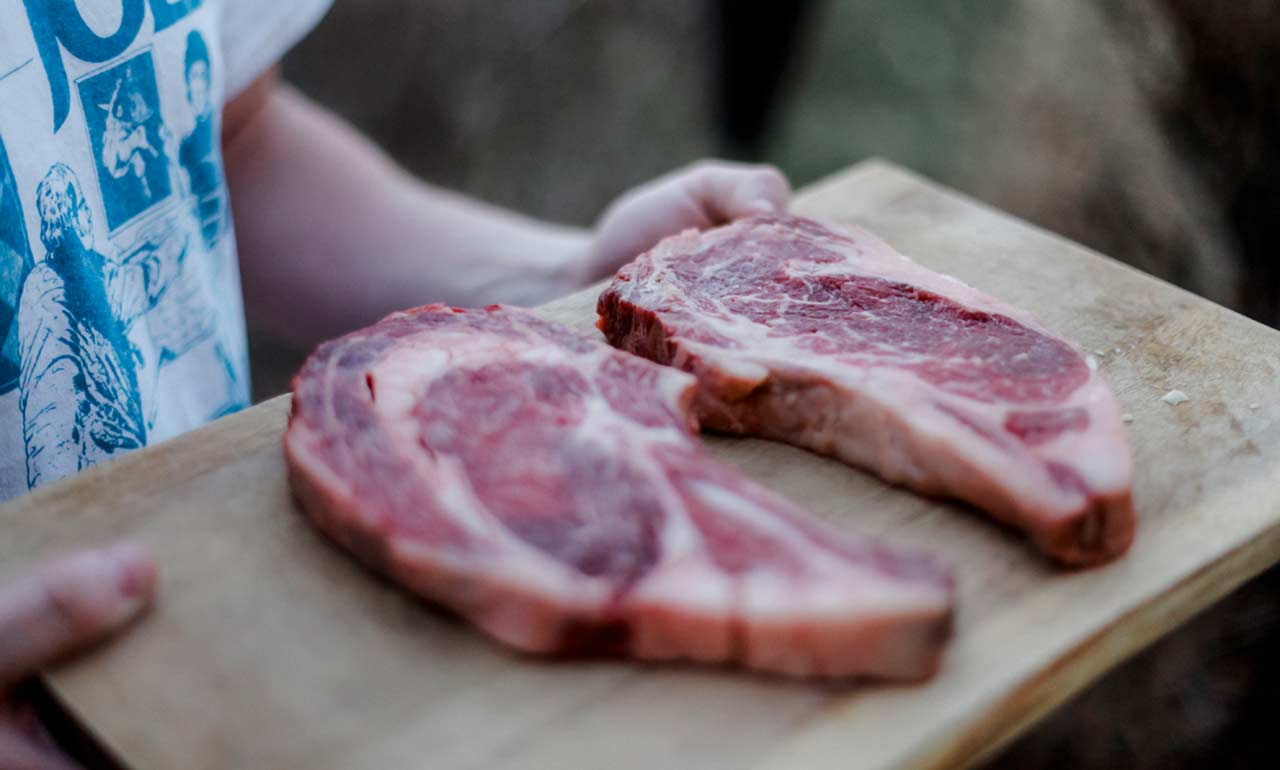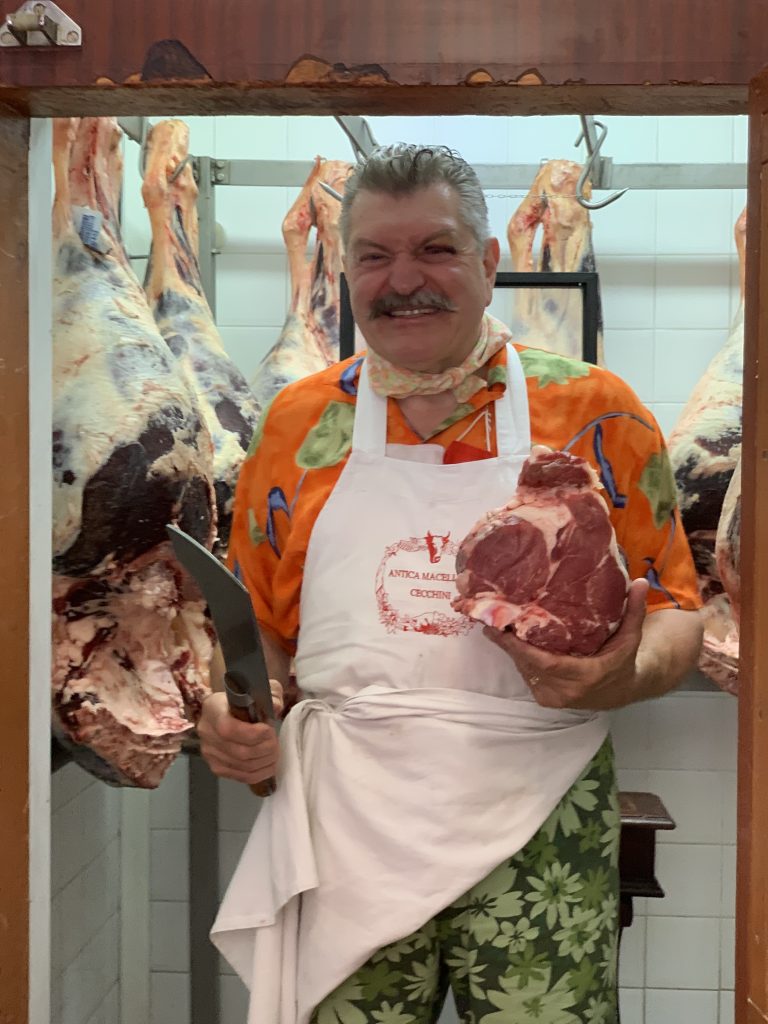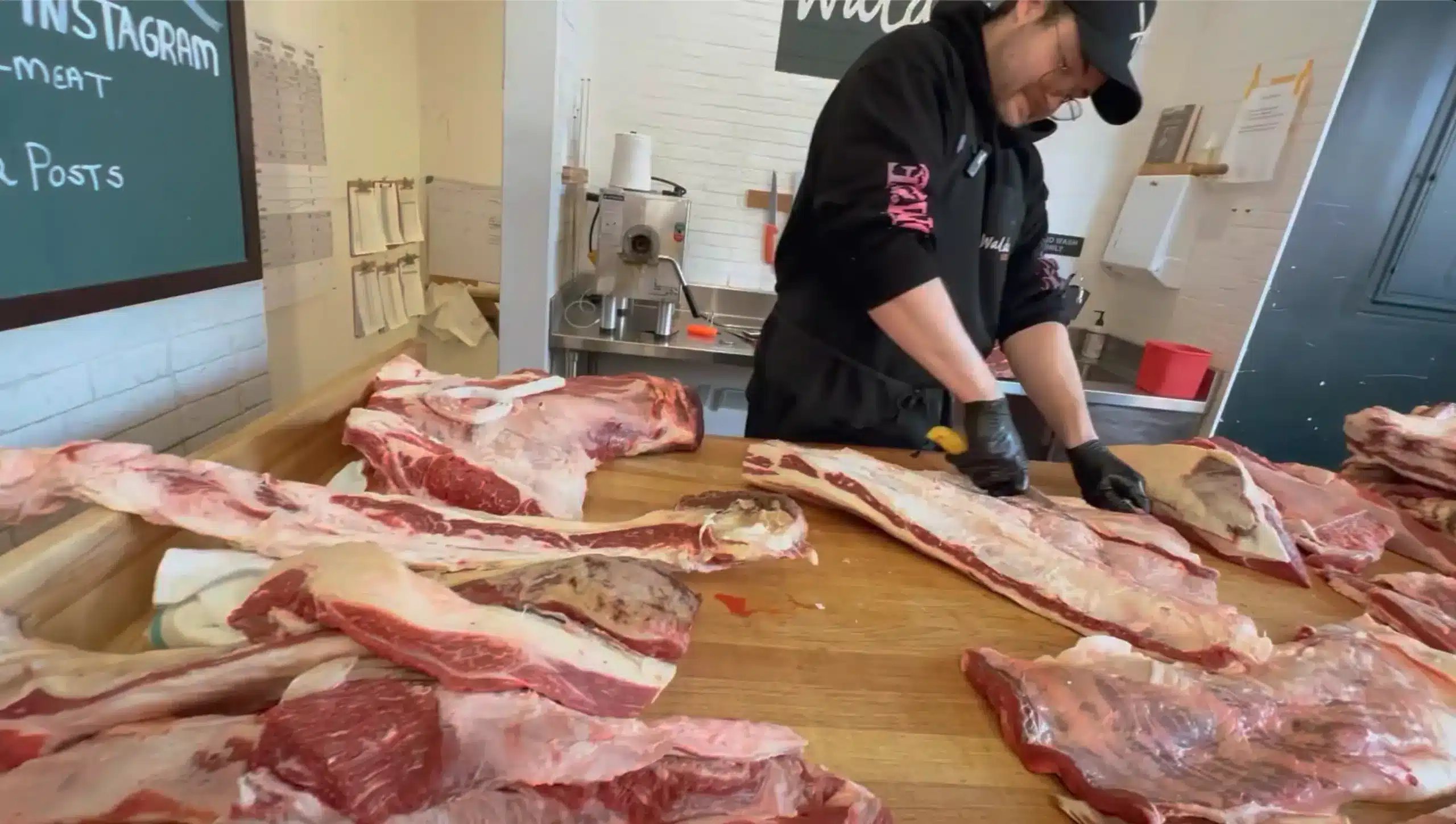Discover how meat delivery near me provides convenient access to fresh products.
All About Meat Markets: Understanding Their Role in Sustaining Neighborhood Farmers
Meat markets serve a vital function in regional economic situations by linking the void in between farmers and customers. They offer a direct sales network that improves the freshness and quality of meat products. Beyond convenience, these markets play a significant function in advertising lasting agriculture and sustaining the source of incomes of local farmers. The implications of this connection prolong additionally than one could anticipate, increasing inquiries regarding sourcing practices and customer selections.
The Relevance of Meat Markets in Regional Economies
Usually overlooked, meat markets play a vital duty in bolstering local economic climates by sustaining farmers and generating jobs. These establishments function as vital intermediaries, offering a platform for neighborhood producers to offer their items straight to consumers. By buying locally sourced meat, customers add to the sustainability of close-by farms, guaranteeing their stability and promoting farming diversity.
Meat markets create employment possibilities, varying from sales and butchers team to management and logistics roles. This work creation boosts the regional economic climate, fostering a sense of neighborhood as locals involve with their neighborhood companies.
On top of that, meat markets frequently draw in clients who seek premium, fresh products, which can cause increased foot traffic and sales for bordering organizations. In general, the presence of meat markets can considerably improve neighborhood economic health and wellness, fortifying connections between agriculture and neighborhood well-being while sustaining the source of incomes of farmers.

Linking Consumers and farmers: Just how Meat Markets Operate
Meat markets work as vital hubs that attach local farmers straight with customers, facilitating a streamlined supply chain that benefits both parties. By sourcing products from neighboring ranches, these markets guarantee that customers get fresh, top quality meat while supporting neighborhood farming. The operation of meat markets involves developing partnerships with farmers, often permitting them to showcase their products and share their farming methods.
Subsequently, consumers access to a varied choice of meats that show regional tastes and preferences. Transparency is a vital facet of these markets, as customers are usually supplied with info about the sourcing and managing of the meat. This direct link promotes count on and commitment between customers and farmers, enhancing community connections. Additionally, meat markets frequently take part in advertising activities, such as farm-to-table occasions, which further improve the consumer's experience and awareness of neighborhood farming methods.
Promoting Lasting Agriculture Practices
Promoting lasting agriculture techniques is essential for the future of food manufacturing and ecological health. By concentrating on honest farming strategies, urging biodiversity, and advocating for seasonal and neighborhood sourcing, the farming field can significantly minimize its environmental impact. These practices not only support the environment but likewise foster a much healthier connection in between customers and farmers.

Moral Farming Techniques
An expanding number of farmers are embracing ethical farming strategies to boost sustainability and lower environmental impact. These approaches concentrate on responsible land management, minimizing the use of chemical plant foods and pesticides, and accepting organic practices. Techniques such as plant rotation, cover cropping, and agroforestry not only improve soil health and wellness yet additionally promote biodiversity. Furthermore, farmers are significantly prioritizing animal well-being by providing pasture-based systems and minimizing confinement methods. By focusing on regional sources and community engagement, moral farming promotes a resistant farming system. This shift not only benefits the atmosphere but likewise reinforces the link in between farmers and customers, motivating educated getting choices that support lasting practices. Ultimately, these strategies serve to create a much more sustainable future for farming.

Biodiversity and Ecosystem Health
While numerous agricultural practices have actually historically focused on yield over eco-friendly equilibrium, a growing acknowledgment of biodiversity's relevance has actually emerged amongst farmers and customers alike. Biodiversity boosts ecosystem resilience, supporting soil health and wellness, insect control, and pollination. By incorporating diverse plants and animals, farmers can develop a lot more steady ecological communities that reduce reliance on chemical inputs and enhance total productivity. Sustainable farming methods that advertise biodiversity not only protect natural habitats yet also add to the long-lasting viability of farming. Meat markets play a necessary duty in this paradigm shift by supporting for neighborhood products that prioritize eco-friendly health and wellness. By picking to resource from ranches that welcome biodiversity, customers can support methods that guarantee a sustainable future for agriculture and the setting.
Seasonal and Regional Sourcing
Seasonal and neighborhood sourcing not only boosts the quality of food however likewise supports lasting farming methods that benefit both farmers and consumers. By prioritizing regional meat markets, consumers can link directly with farmers, cultivating a sense of area and trust fund. This model minimizes the carbon impact connected with long-distance transport, promoting ecological sustainability. Farmers benefit from even more steady earnings and a trusted market for their products, which urges accountable farming techniques. Furthermore, seasonal sourcing encourages diverse farming techniques, allowing farmers to turn plants and livestock, therefore maintaining dirt health and wellness and biodiversity. In general, this method develops a more durable food system that lines up with the values of sustainability, top quality, and neighborhood support, enhancing the essential link in between consumers and regional farming systems.
The Role of Transparency in Sourcing Meat
What factors add to consumer rely on meat items? Openness in sourcing is an important component. Customers increasingly look for information concerning where their meat originates from, consisting of the farms and techniques included in elevating the pets. Meat markets that prioritize transparency frequently present clear labeling, describing the source and production methods utilized. This openness promotes confidence and enables customers to make enlightened choices.
In addition, transparent techniques can include ranch check outs, collaborations with regional farmers, and sharing stories about the pets and their environments. As consumers become extra informed concerning food sourcing, they often tend to like meat products from providers who are upcoming with details. This demand for openness not only enhances customer depend on yet additionally urges meat markets to establish moral partnerships with neighborhood farmers. Ultimately, transparency supports a cycle of responsibility, profiting both consumers and manufacturers in the meat market.
Sustaining Animal Well-being With Local Sourcing
Sustaining animal welfare with local sourcing rest on the adoption of moral farming practices. By focusing on openness in sourcing, customers can make enlightened selections that reflect their values. Furthermore, area engagement initiatives promote a stronger link between consumers and farmers, enhancing the total commitment to humane treatment of pets.
Moral Farming Practices
While customers progressively prioritize ethical factors to consider in their food choices, regional sourcing provides a sensible course to sustaining animal welfare. Ethical farming techniques emphasize humane therapy of animals, guaranteeing they have sufficient area, proper nutrition, and access to exterior atmospheres. Local ranches usually adhere to these standards, as they are more responsible to their consumers and neighborhoods. By picking to source meat locally, customers can sustain ranches that prioritize humane and sustainable methods over industrialized approaches, which usually endanger animal wellness. This link promotes a deeper wagyu store understanding of food production and urges liable intake. Ultimately, local sourcing encourages customers to make educated choices that straighten with their values relating to honest therapy of animals in the food sector.
Openness in Sourcing
How can openness in sourcing boost customer count on neighborhood meat markets? By offering clear info regarding the beginnings of their products, local meat markets foster a sense of responsibility and honesty. When consumers comprehend the sourcing practices, consisting of the treatment of animals and farming methods, they are a lot more most likely to feel positive in their acquiring decisions. This transparency enables consumers to straighten their values with the companies they sustain, understanding they are adding to honest animal welfare and lasting techniques. Furthermore, regional meat markets can showcase partnerships with neighboring farms, stressing neighborhood assistance and enhancing a positive connection between consumers and producers. Inevitably, transparency in sourcing not only builds depend on however likewise motivates enlightened options amongst customers.
Community Involvement Initiatives
What role do community interaction efforts play in advertising animal welfare through neighborhood sourcing? These efforts markedly boost awareness and understanding of ethical farming techniques amongst customers. By promoting links between neighborhood farmers and neighborhood members, meat markets can emphasize the importance of gentle treatment of animals. Educational workshops and ranch scenic tours permit customers to witness firsthand the problems under which pets are raised, reinforcing the value of local sourcing. Additionally, neighborhood events, such as farm-to-table suppers, highlight the partnership in between pet welfare and lasting techniques. With these involvements, customers develop trust in local meat markets, motivating them to support moral fostering a society and sourcing of liable consumption that prioritizes animal welfare in the neighborhood.
Wellness Conveniences of Finding Resident Meat Products
Picking neighborhood meat products offers many health and wellness advantages that can considerably improve general well-being (farmer's meat market near me). One significant benefit is the minimized time in between ranch and table, which often leads to fresher meat with higher dietary worth. Neighborhood meats often tend to be devoid of damaging preservatives and additives frequently located in factory-farmed options, contributing to a cleaner diet plan
In addition, local farmers frequently focus on humane and sustainable methods, causing much healthier animals that create better-quality meat. Grass-fed and pasture-raised pets, frequently located in neighborhood markets, normally have greater levels of omega-3 fatty acids and lower levels of hydrogenated fats compared to their barnyard equivalents.
Moreover, sustaining neighborhood meat items promotes neighborhood health by ensuring that consumers have access to safe and properly sourced food. By picking neighborhood, individuals not just nurture themselves but likewise add to the health of their community and setting.
Making Educated Choices at the Meat Market
When passing through a meat market, comprehending the key elements that influence quality and sourcing can encourage consumers to make educated choices. Buyers must focus on regional items, which usually originate from ranches with lasting practices. Acknowledging labels such as "grass-fed" or "organic" can likewise direct choices, as these frequently suggest greater well-being criteria and dietary benefits.
Involving with the butcher is vital; experienced team can give understandings right affordable meat delivery into the sourcing of their meats and recommend cuts that match different cooking approaches. Consumers are urged to make inquiries about the farm's techniques, consisting of animal treatment and feed.
In addition, checking out the meat's color and texture can expose freshness and quality. Lean cuts must appear bright and wet, while fatty cuts ought to have a marbled appearance. By integrating these methods, customers can with confidence select meats that align with their values and assistance regional agriculture.
Frequently Asked Concerns
What Kinds of Meat Are Most Generally Cost Local Meat Markets?
Neighborhood meat markets normally supply a selection of meats, including beef, chicken, pork, and lamb. These facilities frequently include specialty cuts, sausages, and locally sourced products, providing to diverse culinary preferences and consumer needs.
Exactly How Can I Locate a Meat Market Near My Place?
To find a meat market nearby, one can use on-line maps, internet search engine, or regional directory sites - bagley meat market edwardsville il. In addition, asking next-door neighbors or good friends for suggestions commonly generates useful understandings into the very best neighborhood alternatives readily available
Are There Seasonal Variations in Meat Schedule at Meat Markets?
Seasonal variants in meat availability at meat markets typically occur, affected by elements such as local farming methods, animal reproduction cycles, and seasonal demand. This can influence the kinds and amounts of meat provided throughout the year.
Do Meat Markets Offer Special Promotions or Discounts for Bulk Purchases?
Meat markets frequently offer unique promos and discounts for bulk acquisitions. This practice motivates clients to acquire larger quantities while making it possible for the markets to take care of inventory effectively, benefiting both consumers and business financially.
Can I Ask For Specific Cuts of Meat at the Market?
Yes, customers can frequently request details cuts of meat at the market. Several butchers are eager to accommodate special orders, making certain that patrons receive the precise cuts they desire, tailored to their choices.
By sourcing products from close-by ranches, these markets assure that customers get fresh, high-quality meat while sustaining regional agriculture. By prioritizing neighborhood meat markets, customers can attach straight with farmers, cultivating a sense of area and trust fund. Just how can transparency click this link in sourcing enhance customer trust fund in regional meat markets? Local meat markets generally supply a selection of meats, including beef, chicken, pork, and lamb. Seasonal variations in meat schedule at meat markets usually take place, influenced by factors such as neighborhood farming practices, animal reproduction cycles, and seasonal need.